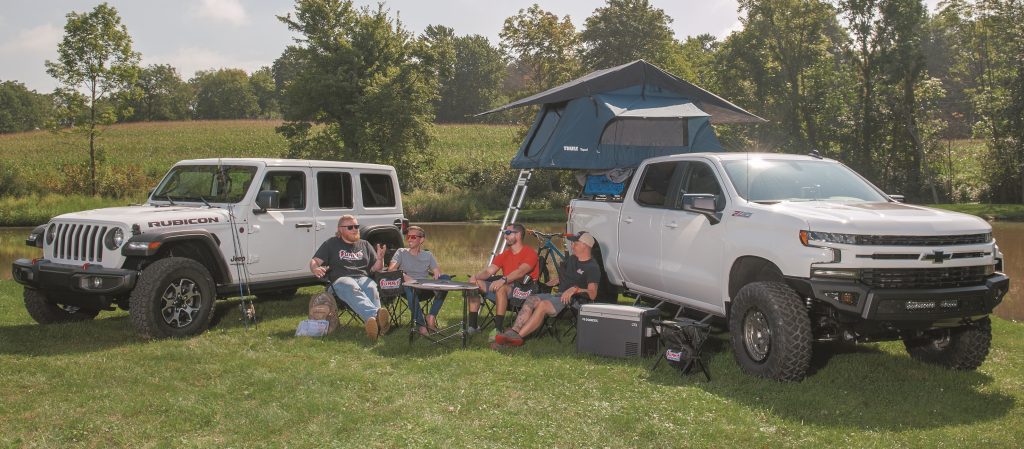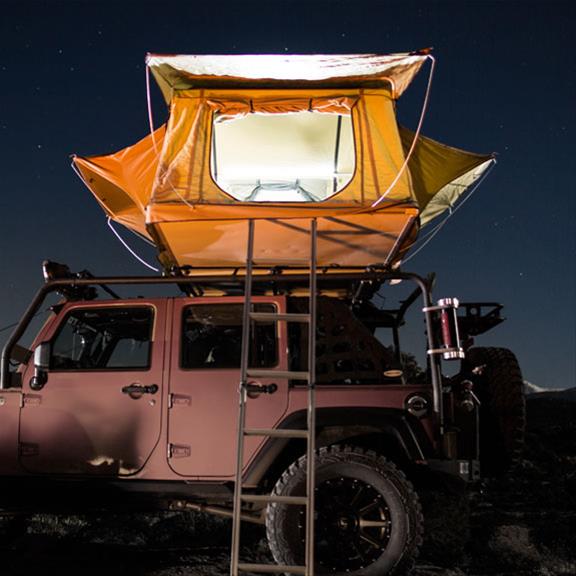Overlanding continues to grow in popularity, and as more folks are drawn to overland and car camping adventures, they’re bringing with them a lot of questions.
This post will provide some brief answers on a few overlanding topics, along with links to longer overlanding articles to help you learn more.
What is Overlanding?

Put simply, overlanding is a fusion of off-road travel and car camping. It has its origins in the early days of overland routes traveled on horseback. Overlanding blends qualities of off-roading, road tripping, and camping to create a unique experience.
Learn more about overlanding in this article:
Overlanding 101: What It Is and How to Get Started
What Do I Need to Start Overlanding?
The biggest question most folks have in regard to overlanding is how to get started. To get the answer, read the Overlanding 101 post in the link above, then check out our series of Overlanding Essentials articles that’ll dive into a few key topics in much greater detail.
- Overlanding Essentials: Cell Phones, Mobile Radios & Off-Road Communications
- Overlanding Essentials: Camping & Off-Roading Tool Kit Checklist
- Overlanding Essentials: Tents, Shelter & Sleeping
- Overlanding Essentials: Vehicle Towing & Off-Road Recovery Gear
- Overlanding Essentials: Vehicle Cargo Rack Solutions for Carrying Your Off-Road Camping Gear
- Overlanding Essentials: Off-Road Lights & Campsite Illumination
What Kind of Vehicle Should I Use as My Overlanding Rig
That’s the beauty of it! You don’t need to buy a dedicated off-roader to enjoy an overlanding journey. Stories abound of folks overlanding in minivans, crossover SUVs, motorcycles, and beyond.
To best answer the question of which overlanding vehicle you should use, try to understand what overlanding environment you’re driving into. Many parks and campsites are accessible with a standard front-wheel-drive sedan, but if you plan to do any significant trail riding, then your vehicle needs can change dramatically.
When you’re planning your overlanding expedition, make some phone calls, pore over some websites, and talk to friends who’ve visited similar areas. Even a quick bit of research can tell you a lot about the kind of vehicle you’ll need to complete your overlanding trek.
The key detail is to ensure your vehicle (and ultimately its passengers) are prepared for the journey. Pack everything you’ll need to be prepared and make sure your overlanding trip is safe and fun.

How Expensive is Overlanding?
One of the most attractive qualities of the overlanding hobby is that it’s scalable. Sure, there are folks who disappear into the brush for weeks with a serious off-road rig, but an overlanding trip could also be as simple as visiting a National Park in a station wagon with the family. You get to decide how extreme your journey is.
It’s no secret that off-roading can get pricey. But, just like a lot of hobbies, you can have plenty of fun and adventure on a budget. Camping itself can be a nebulous term too—how elaborate do you want your camp setup to be?
Can you make-do without a warm shower for a few days? Are you OK with eating simple meals? Do you plan on doing any mountain biking, fishing, or other activities beyond a simple hike? The answers to these questions have a direct impact on the cost of an overlanding trip.
The Best Advice to Get Started in Overlanding
Perhaps the best advice for someone new to overlanding (and camping in general) is to start simple. Visit a local park for a weekend. Learn from it. What did you use? What didn’t you use? As alluded to in the section above, overlanding is scalable, meaning you have the power to decide how much time, effort, and money you want to spend on the trek.
After your initial foray into overlanding, you’ll be able to ascertain whether you liked it, and perhaps more importantly, you’ll know what you need to make future overlanding adventures more enjoyable.

[…] Overlanding continues to grow in popularity, and as more folks are drawn to overland and car camping adventures, they’re bringing with them a lot of questions. This post will provide […] Read full article at http://www.onallcylinders.com […]